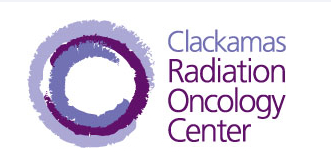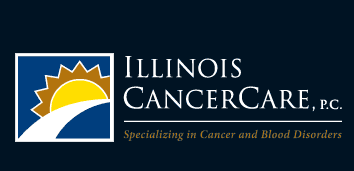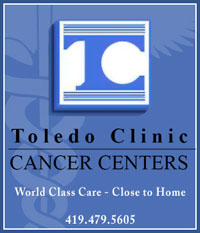Pazopanib Hydrochloride in Treating Patients With Progressive Carcinoid Tumors
| Status: | Active, not recruiting |
|---|---|
| Conditions: | Skin Cancer, Cancer, Cancer, Cancer, Cancer, Cancer, Brain Cancer |
| Therapuetic Areas: | Oncology |
| Healthy: | No |
| Age Range: | 18 - Any |
| Updated: | 3/13/2019 |
| Start Date: | June 21, 2013 |
Prospective Randomized Phase II Trial of Pazopanib (NSC # 737754) Versus Placebo in Patients With Progressive Carcinoid Tumors
This randomized phase II trial studies how well pazopanib hydrochloride works in treating
patients with carcinoid tumors that are growing, spreading, or getting worse. Pazopanib
hydrochloride may stop the growth of tumor cells by blocking some of the enzymes needed for
cell growth.
patients with carcinoid tumors that are growing, spreading, or getting worse. Pazopanib
hydrochloride may stop the growth of tumor cells by blocking some of the enzymes needed for
cell growth.
PRIMARY OBJECTIVES:
I. For patients with progressive carcinoid tumors, progression-free survival (PFS defined by
central review according to Response Evaluation Criteria in Solid Tumors [RECIST] 1.1) will
be compared between patients randomized to treatment with pazopanib (pazopanib hydrochloride)
versus placebo.
SECONDARY OBJECTIVES:
I. Overall survival (OS) will be compared between treatment arms. II. Objective response
rate, duration of response, and time to treatment failure will be compared between treatment
arms.
III. Progression free survival (PFS) as assessed by central radiology review and local
radiology review will be compared overall and within treatment arms.
IV. Safety and tolerability of treatment with pazopanib/placebo will be evaluated within each
treatment arm.
V. PFS and other indicators of efficacy will be estimated in patients who crossover to
pazopanib from placebo.
VI. To determine the turn-around time for timely adjudicated central review. VII. To
characterize the nature of discordance between local and central radiology review in
assessment of progression.
VIII. To characterize the type and rate of progression in carcinoid (at study entry,
on-study, and at progression).
IX. To develop new methods for modeling carcinoid growth and detecting treatment effects, and
to perform simulations that advance new clinical trial designs to apply to future trials of
carcinoid therapeutics.
X. To assess for differences in quality of life (QOL)-related domains between the two
treatment groups (pazopanib versus placebo).
XI. To determine if the more brief measures of QOL-related domains provide comparable
information to that which is provided by the longer assessments (European Organization for
Research and Treatment of Cancer [EORTC], neuroendocrine tumors [NET]21).
XII. To provide validation data for the EORTC NET21 module in terms of responsiveness over
time and differences across arms.
XIII. To determine whether components of the plasma angiome panel that have been shown to be
predictive previously (interleukin-6 [IL-6] and vascular endothelial growth factor [VEGF]-D)
are predictive of a therapeutic advantage for pazopanib treatment in baseline samples from
the patients treated on A021202.
XIV. To determine whether other components of the plasma angiome panel tested (not IL-6 and
VEGF-D) are predictive of a therapeutic advantage for pazopanib treatment in baseline samples
from the patients treated on A021202.
XV. To evaluate the changes in the plasma angiome markers after treatment with or without
pazopanib over time.
EXPLORATORY OBJECTIVES:
I. PFS at 6 months will be estimated within each treatment arm. II. Biochemical response (for
chromogranin A, defined as a decrease of 50% or more in chromogranin A levels from baseline
and for 5-hydroxyindoleacetic acid [5-HIAA], defined as a decrease of 50% or more in urinary
5-HIAA levels from baseline) will be compared between treatment arms among patients with
elevated baseline levels of chromogranin A (CGA) and 5-HIAA.
OUTLINE: Patients are randomized to 1 of 2 treatment arms.
ARM I: Patients receive pazopanib hydrochloride orally (PO) once daily (QD) on days 1-28.
Courses repeat every 28 days in the absence of disease progression or unacceptable toxicity.
ARM II: Patients receive placebo PO QD on days 1-28. Courses repeat every 28 days in the
absence of disease progression or unacceptable toxicity. At the time of progressive disease,
patients may cross-over to Arm I.
After completion of study treatment, patients are followed up every 3-6 months for 5 years.
I. For patients with progressive carcinoid tumors, progression-free survival (PFS defined by
central review according to Response Evaluation Criteria in Solid Tumors [RECIST] 1.1) will
be compared between patients randomized to treatment with pazopanib (pazopanib hydrochloride)
versus placebo.
SECONDARY OBJECTIVES:
I. Overall survival (OS) will be compared between treatment arms. II. Objective response
rate, duration of response, and time to treatment failure will be compared between treatment
arms.
III. Progression free survival (PFS) as assessed by central radiology review and local
radiology review will be compared overall and within treatment arms.
IV. Safety and tolerability of treatment with pazopanib/placebo will be evaluated within each
treatment arm.
V. PFS and other indicators of efficacy will be estimated in patients who crossover to
pazopanib from placebo.
VI. To determine the turn-around time for timely adjudicated central review. VII. To
characterize the nature of discordance between local and central radiology review in
assessment of progression.
VIII. To characterize the type and rate of progression in carcinoid (at study entry,
on-study, and at progression).
IX. To develop new methods for modeling carcinoid growth and detecting treatment effects, and
to perform simulations that advance new clinical trial designs to apply to future trials of
carcinoid therapeutics.
X. To assess for differences in quality of life (QOL)-related domains between the two
treatment groups (pazopanib versus placebo).
XI. To determine if the more brief measures of QOL-related domains provide comparable
information to that which is provided by the longer assessments (European Organization for
Research and Treatment of Cancer [EORTC], neuroendocrine tumors [NET]21).
XII. To provide validation data for the EORTC NET21 module in terms of responsiveness over
time and differences across arms.
XIII. To determine whether components of the plasma angiome panel that have been shown to be
predictive previously (interleukin-6 [IL-6] and vascular endothelial growth factor [VEGF]-D)
are predictive of a therapeutic advantage for pazopanib treatment in baseline samples from
the patients treated on A021202.
XIV. To determine whether other components of the plasma angiome panel tested (not IL-6 and
VEGF-D) are predictive of a therapeutic advantage for pazopanib treatment in baseline samples
from the patients treated on A021202.
XV. To evaluate the changes in the plasma angiome markers after treatment with or without
pazopanib over time.
EXPLORATORY OBJECTIVES:
I. PFS at 6 months will be estimated within each treatment arm. II. Biochemical response (for
chromogranin A, defined as a decrease of 50% or more in chromogranin A levels from baseline
and for 5-hydroxyindoleacetic acid [5-HIAA], defined as a decrease of 50% or more in urinary
5-HIAA levels from baseline) will be compared between treatment arms among patients with
elevated baseline levels of chromogranin A (CGA) and 5-HIAA.
OUTLINE: Patients are randomized to 1 of 2 treatment arms.
ARM I: Patients receive pazopanib hydrochloride orally (PO) once daily (QD) on days 1-28.
Courses repeat every 28 days in the absence of disease progression or unacceptable toxicity.
ARM II: Patients receive placebo PO QD on days 1-28. Courses repeat every 28 days in the
absence of disease progression or unacceptable toxicity. At the time of progressive disease,
patients may cross-over to Arm I.
After completion of study treatment, patients are followed up every 3-6 months for 5 years.
Inclusion Criteria:
- Low- or intermediate-grade neuroendocrine carcinoma, including the following subtypes:
carcinoid tumor, low- to intermediate-grade or well- to moderately-differentiated
neuroendocrine carcinoma or tumor, atypical carcinoid tumor; documentation from a
primary tumor or metastatic site is sufficient; patients with poorly differentiated
neuroendocrine carcinoma, high-grade neuroendocrine carcinoma, adenocarcinoid tumor,
or goblet cell carcinoid tumor are not eligible
- Locally unresectable or metastatic carcinoid tumors
- Patients must have histologic documentation or clinical evidence of a carcinoid tumor
of primary site (including foregut, midgut, hindgut or other non-pancreatic site);
tumors of unknown primary site are eligible provided the treating physician does not
suspect medullary thyroid cancer, pancreatic neuroendocrine tumor, paraganglioma, or
pheochromocytoma; unknown primary tumors will be classified as small bowel tumors for
the purpose of stratification; functional (associated with a clinical syndrome) or
nonfunctional tumors are allowed; target lesions must have shown disease progression
if therapy included peptide receptor radiotherapy (PRRT) and PRRT must be completed at
least 8 weeks prior to registration
- Radiological evidence for progressive disease (measurable or non-measurable) within 12
months prior to registration; patients who have received anti-tumor therapy during the
past 12 months (including octreotide analogs) must have had radiological documentation
of progression of disease while on or after receiving therapy
- No known endobronchial lesions and/or lesions infiltrating major pulmonary vessels
that increase the risk of pulmonary hemorrhage; patients with lesions infiltrating
major pulmonary vessels (contiguous tumor and vessels) are excluded; however, the
presence of a tumor that is touching, but not infiltrating (abutting) the vessels is
acceptable (computed tomography [CT] with contrast is strongly recommended to evaluate
such lesions); patients with large protruding endobronchial lesions in the main or
lobar bronchi are excluded; however, endobronchial lesions in the segmented bronchi
are allowed
- Patients must have measurable disease per RECIST 1.1 by computed tomography (CT) scan
or magnetic resonance imaging (MRI); lesions must be accurately measured in at least
one dimension (longest diameter to be recorded) as >= 1 cm with CT or MRI (or >= 1.5
cm for lymph nodes); index lesions for the purpose of RECIST 1.1 measurements will not
be selected from within the radiation therapy treatment field; however, if there is
evidence of disease progression within the radiation treatment field, measurement of
the progressing lesions will be documented
- No prior treatment with an inhibitor of vascular endothelial growth factor (VEGF) or
vascular endothelial growth factor receptor (VEGFR)
- Prior treatment (somatostatin analogs excepted) must be completed at least 2 weeks
prior to registration; in addition, prior treatment (somatostatin analogs excepted)
must be completed at least 4 weeks prior to initiation of study drug;
treatment-related toxicities must have improved to =< grade 1 prior to registration,
with the exception of alopecia
- Concurrent use of somatostatin analogs (SSTa) is allowed, provided that the patient is
on a stable dose for at least two months and progressive disease on somatostatin
analog has been documented; progression on octreotide is required for patients with
tumors arising in the midgut
- Prior treatment with embolization (including bland embolization, chemoembolization,
and selective internal radiation therapy) or ablative therapies is allowed if
measurable disease remains outside of the treated area or there is documented disease
progression in a treated site; there is no limit on the prior number of procedures;
prior liver-directed or other ablative treatment must be completed at least 8 weeks
prior to registration; index lesions for the purpose of RECIST 1.1 measurements will
not be selected from within the radiation therapy treatment field; however, if there
is evidence of disease progression within the radiation treatment field, measurement
of the progressing lesions will be documented
- Patients should have completed any major surgery >= 4 weeks prior to registration and
must have completed any minor surgery >= 2 weeks prior to registration; patients must
have fully recovered from the procedure
- The following are examples of procedures considered to be minor: port placement,
laparoscopy, thoracoscopy, bronchoscopy, mediastinoscopy, skin biopsies,
incisional biopsies, imaging-guided biopsy for diagnostic purposes, and dental
extraction procedures
- Insertion of a vascular access device, thoracentesis, paracentesis, and
endoscopic ultrasonographic procedures are not considered to be major or minor
surgeries
- No concurrent condition resulting in immune compromise, including chronic treatment
with corticosteroids or other immunosuppressive agents
- No clinical evidence of central nervous system (CNS) metastases (including
carcinomatous meningitis) at baseline, with the exception of those patients who have
previously-treated CNS metastases (surgery +/- radiotherapy, radiosurgery, or gamma
knife) and who meet both of the following criteria: a) are asymptomatic and b) had no
requirement for steroids or enzyme-inducing anticonvulsants within 6 months prior to
registration
- No history of abdominal fistula, gastrointestinal perforation, or intra-abdominal
abscess within 28 days prior to registration
- No clinically significant gastrointestinal abnormalities that may increase the risk
for gastrointestinal bleeding within 28 days prior to registration including, but not
limited to:
- Active peptic ulcer
- Known endoluminal metastatic lesion(s) with history of bleeding
- Inflammatory bowel disease (e.g. ulcerative colitis, Crohn's disease), or other
gastrointestinal conditions with increased risk of perforation
- No history of serious (i.e., requiring active medical therapy with medication or
medical device under the supervision of a physician) non-healing wound, ulcer, trauma,
or bone fracture within 28 days prior to study entry
- Patients with a history of hypertension must have blood pressure that is adequately
controlled on antihypertensives; (< 140/90 mm Hg)
- No symptomatic congestive heart failure (New York Heart Association class II, III, or
IV) within 6 months prior to registration
- No arterial thrombotic events within 6 months of registration, including transient
ischemic attack (TIA), cerebrovascular accident (CVA), peripheral arterial thrombus,
myocardial infarction (MI), or unstable angina or angina requiring surgical or medical
intervention in 6 months prior to registration; patients with clinically significant
peripheral artery disease (i.e., claudication on less than one block) are ineligible;
patients who have experienced a deep venous thrombosis or pulmonary embolus within 6
months prior to registration must be on stable therapeutic anticoagulation for at
least 6 weeks prior to enrollment of this study
- Patients on therapeutic anticoagulation with low molecular weight heparins,
fondaparinux, rivaroxaban or warfarin are eligible, provided that they are on a stable
dose of anticoagulants; patients who are currently receiving antiplatelet therapy of
prasugrel or clopidogrel or antiaggregation agents (e.g., eptifibatide, epoprostenol,
dipyridamole) or low doses of acetylsalicylic acid (up to 100 mg daily) are also
eligible
- No ongoing cardiac dysrhythmias, atrial fibrillation, or prolongation of corrected QT
(QTc) interval to > 480 msec
- No evidence of active bleeding, bleeding diathesis, or hemoptysis (>= 1/2 teaspoon of
red blood) within 8 weeks prior to registration
- No currently unstable angina and/or uncontrolled cardiac arrhythmias
- Patients with symptomatic peripheral vascular disease are ineligible
- Ejection fraction on echocardiogram (Echo) or multi gated acquisition scan (MUGA) >
50%
- Chronic concomitant treatment with strong inhibitors of cytochrome P450, family 3,
subfamily A, polypeptide 4 (CYP3A4) is not allowed on this trial; patients on strong
CYP3A4 inhibitors must discontinue the drug 14 days prior to the start of study
treatment
- Women must not be pregnant or nursing; women of child bearing potential must have a
negative serum or urine pregnancy test (minimum sensitivity 25 IU/L or equivalent
units of human chorionic gonadotropin [HCG]) within 72 hours prior to registration;
women of child-bearing potential include any female who has experienced menarche and
who has not undergone surgical sterilization (hysterectomy, bilateral tubal ligation
or bilateral oophorectomy) or is not postmenopausal (defined as amenorrhea >= 12
consecutive months; or women on hormone replacement therapy [HRT] with documented
serum follicle stimulating hormone [FSH] level > 35 mIU/mL)
- Eastern Cooperative Oncology Group (ECOG) performance status 0-1
- Granulocytes >= 1,500/mcL
- Platelets >= 100,000/mcL
- International normalized ratio (INR) =< 1.2 X upper limit of normal (ULN); only
required for patients receiving anticoagulant therapy; patients are eligible if their
INR is stable and within the recommended range for the desired level of
anticoagulation
- QTc =< 480 msecs
- Thyroid stimulating hormone (TSH) within normal limits (WNL); medications for thyroid
dysfunction are allowed as long as TSH is normal at registration; in patients with
abnormal TSH, if the free thyroxine (free T4) and free thyroxine index (FTI) are
normal and patient is clinically euthyroid, patient is eligible
- Bilirubin =< 1.5 x ULN
- Aspartate aminotransferase (AST) (serum glutamic oxaloacetic transaminase [SGOT]) &
alanine aminotransferase (ALT) (serum glutamate pyruvate transaminase [SGPT]) =< 2.5 x
ULN; concomitant elevations in bilirubin and AST/ALT above 1.0 X ULN are NOT
permitted; also, if liver metastases are present, AST & ALT =< 5 x ULN is allowed
- Serum creatinine =< 1.5 x ULN
- Urine protein to creatinine ratio < 1, or, 24-hour urine protein < 1 g; if urine
protein to creatinine (UPC) >= 1, then a 24-hour urine protein must be assessed;
patients must have a 24-hour urine protein value < 1 g to be eligible; use of urine
dipstick for renal function assessment is not acceptable
We found this trial at
425
sites
Intermountain Medical Center Intermountain Medical Center is one of the most technologically advanced and patient-friendly...
Click here to add this to my saved trials
1201 Camino de Salud Northeast
Albuquerque, New Mexico 87131
Albuquerque, New Mexico 87131
(505) 272-4946

University of New Mexico Cancer Center It’s been 40 years since the New Mexico State...
Click here to add this to my saved trials
Baylor University Medical Center Baylor University Medical Center in Dallas, TX is ranked nationally in...
Click here to add this to my saved trials
Hurley Medical Center From its founding in 1908, Hurley Medical Center has devoted itself to...
Click here to add this to my saved trials
1800 West Charleston Boulevard
Las Vegas, Nevada 89102
Las Vegas, Nevada 89102
(702) 383-2000

University Medical Center of Southern Nevada University Medical Center is dedicated to providing the highest...
Click here to add this to my saved trials
Cedars Sinai Med Ctr Cedars-Sinai is known for providing the highest quality patient care. Our...
Click here to add this to my saved trials
4805 Northeast Glisan Street
Portland, Oregon 97213
Portland, Oregon 97213
(503) 215-1111

Providence Portland Medical Center We strive to give those we serve exceptional, compassionate health care...
Click here to add this to my saved trials
University of Rochester The University of Rochester is one of the country's top-tier research universities....
Click here to add this to my saved trials
4502 Medical Drive
San Antonio, Texas 78284
San Antonio, Texas 78284
(210) 567-7000

University of Texas Health Science Center at San Antonio The University of Texas Health Science...
Click here to add this to my saved trials
Click here to add this to my saved trials
Click here to add this to my saved trials
Click here to add this to my saved trials
Bixby Medical Center ProMedica's Mission is to improve your health and well-being. Which is why,...
Click here to add this to my saved trials
170 North 1100 East
American Fork, Utah 84003
American Fork, Utah 84003
Click here to add this to my saved trials
Click here to add this to my saved trials
Click here to add this to my saved trials
Click here to add this to my saved trials
Click here to add this to my saved trials
Click here to add this to my saved trials
Click here to add this to my saved trials
Click here to add this to my saved trials
Click here to add this to my saved trials
Saint Joseph Mercy Hospital St. Joseph Mercy Ann Arbor Hospital is a 537-bed teaching hospital...
Click here to add this to my saved trials
Click here to add this to my saved trials
Medical Center of Aurora At The Medical Center of Aurora and Centennial Medical Plaza patients...
Click here to add this to my saved trials
Click here to add this to my saved trials
Click here to add this to my saved trials
Bronson Battle Creek As a proud member of the Battle Creek community, we believe everyone...
Click here to add this to my saved trials
Strecker Cancer Center-Belpre The Memorial Health System's Strecker Cancer Center, Belpre combines the clinical expertise...
Click here to add this to my saved trials
Click here to add this to my saved trials
Click here to add this to my saved trials
Click here to add this to my saved trials
Click here to add this to my saved trials
Click here to add this to my saved trials
Saint Vincent Healthcare The Sisters of Charity of Leavenworth, Kansas, founded St. Vincent Healthcare in...
Click here to add this to my saved trials
Illinois CancerCare-Bloomington Illinois CancerCare, P.C. is a comprehensive practice treating patients withcancer andblood diseases. Our...
Click here to add this to my saved trials
Click here to add this to my saved trials
Click here to add this to my saved trials
Boulder Community Hospital Founded in 1922 as a community-owned and operated not-for-profit hospital, Boulder Community...
Click here to add this to my saved trials
Click here to add this to my saved trials
Toledo Clinic Cancer Centers-Bowling Green Our doctors evaluate and make recommendations regarding cancer treatment for...
Click here to add this to my saved trials
Bozeman Deaconess Hospital Bozeman Deaconess Hospital is a Joint Commission certified, licensed Level III trauma...
Click here to add this to my saved trials
Click here to add this to my saved trials
Click here to add this to my saved trials
Click here to add this to my saved trials
Fairview Ridges Hospital Fairview Ridges Hospital is a 150-bed, Level III Trauma Care facility, offering...
Click here to add this to my saved trials
400 South Clark Street
Butte, Montana 59701
Butte, Montana 59701
406-723-2500

Saint James Community Hospital and Cancer Treatment Center St. James Healthcare has played an important...
Click here to add this to my saved trials
Click here to add this to my saved trials
Click here to add this to my saved trials
Illinois CancerCare - Canton Illinois CancerCare is one of the largest private oncology and hematology...
Click here to add this to my saved trials
Southeast Cancer Center SoutheastHEALTH is a far-reaching network of providers and facilities including Southeast Hospital...
Click here to add this to my saved trials
Illinois CancerCare - Carthage Illinois CancerCare, P.C. is a comprehensive practice treating patients withcancer andblood...
Click here to add this to my saved trials
Rocky Mountain Oncology Rocky Mountain Oncology Center is a spacious, comfortable, state-of-the-art 19,000 square foot...
Click here to add this to my saved trials
Sandra L. Maxwell Cancer Center The Huntsman-Intermountain Cancer Center at Valley View Medical Center in...
Click here to add this to my saved trials
Click here to add this to my saved trials
Click here to add this to my saved trials
Click here to add this to my saved trials
5841 S Maryland Ave
Chicago, Illinois 60637
Chicago, Illinois 60637
1-773-702-6180

University of Chicago Comprehensive Cancer Center The University of Chicago Comprehensive Cancer Center (UCCCC) is...
Click here to add this to my saved trials
Click here to add this to my saved trials
Adena Regional Medical Center Since 1895, Adena Health System has remained focused on its commitment...
Click here to add this to my saved trials
Marshfield Clinic - Chippewa Center The 15,000 square foot Lake Hallie Center provides urgent care...
Click here to add this to my saved trials
Click here to add this to my saved trials
Click here to add this to my saved trials
Click here to add this to my saved trials
Click here to add this to my saved trials
Click here to add this to my saved trials
9280 SE Sunnybrook Blvd #100
Clackamas, Oregon 97015
Clackamas, Oregon 97015
(503) 513-3300

Clackamas Radiation Oncology Center State-of-the-art technology and compassionate care come together at Clackamas Radiation Oncology...
Click here to add this to my saved trials
Case Western Reserve Univ Continually ranked among America's best colleges, Case Western Reserve University has...
Click here to add this to my saved trials
Mercy Cancer Center - West Lakes When it comes to cancer care, there
Click here to add this to my saved trials
Click here to add this to my saved trials
Penrose-Saint Francis Healthcare Founded by the Sisters of St. Francis and the Sisters of Charity,...
Click here to add this to my saved trials
Click here to add this to my saved trials
University of Missouri-Ellis Fischel Ellis Fischel Cancer Center's team of physician specialists and other trained...
Click here to add this to my saved trials
John B. Amos Cancer Center The John B. Amos Cancer Center located in Columbus, Georgia,...
Click here to add this to my saved trials
Click here to add this to my saved trials
Doctors Hospital Nationally recognized for care quality and patient safety and satisfaction, Doctors Hospital is...
Click here to add this to my saved trials
Riverside Methodist Hospital Serving central Ohio since 1892, Riverside Methodist Hospital is consistently ranked one...
Click here to add this to my saved trials
The Mark H. Zangmeister Center At The Zangmeister Center, we appreciate that our patients have...
Click here to add this to my saved trials
Click here to add this to my saved trials
Grant Medical Center Founded in 1900 in Columbus' downtown, Grant has grown into one of...
Click here to add this to my saved trials
Click here to add this to my saved trials
810 Jasonway Avenue
Columbus, Ohio 43214
Columbus, Ohio 43214
614/442-3130

Columbus Oncology and Hematology Associates Inc Columbus Oncology and Hematology Associates is a group of...
Click here to add this to my saved trials
Mercy Hospital Mercy Hospital, located in Coon Rapids, Minnesota, is a 271-bed non-profit hospital that...
Click here to add this to my saved trials
Click here to add this to my saved trials
Geisinger Medical Center Since 1915, Geisinger Medical Center has been known as the region’s resource...
Click here to add this to my saved trials
Miami Valley Hospital Miami Valley Hospital (MVH) is passionate about providing the most recent medical...
Click here to add this to my saved trials
Click here to add this to my saved trials
Good Samaritan Hospital - Dayton Good Samaritan Hospital (GSH) is passionate about providing the most...
Click here to add this to my saved trials
Click here to add this to my saved trials
Click here to add this to my saved trials
Decatur Memorial Hospital An American flag bearing only 48 stars waved above Decatur Memorial Hospital...
Click here to add this to my saved trials
Click here to add this to my saved trials
Grady Memorial Hospital As the center of healthcare in Delaware County, Grady Memorial Hospital is...
Click here to add this to my saved trials
Click here to add this to my saved trials
561 West Central Avenue
Delaware, Ohio 43015
Delaware, Ohio 43015
(740) 615-1000

Delaware Health Center-Grady Cancer Center As the center of healthcare in Delaware County, Grady Memorial...
Click here to add this to my saved trials
Click here to add this to my saved trials
Rose Medical Center Well known as a Denver institution and a 9th Avenue landmark for...
Click here to add this to my saved trials
Porter Adventist Hospital Founded in 1930, Porter Adventist Hospital has provided people throughout Denver and...
Click here to add this to my saved trials
Click here to add this to my saved trials
1721 East 19th Ave., Suite #200 & #300
Denver, Colorado 80218
Denver, Colorado 80218
720-754-4800

Colorado Blood Cancer Institute When patients come to the Colorado Blood Cancer Institute, the entire...
Click here to add this to my saved trials
Click here to add this to my saved trials





































